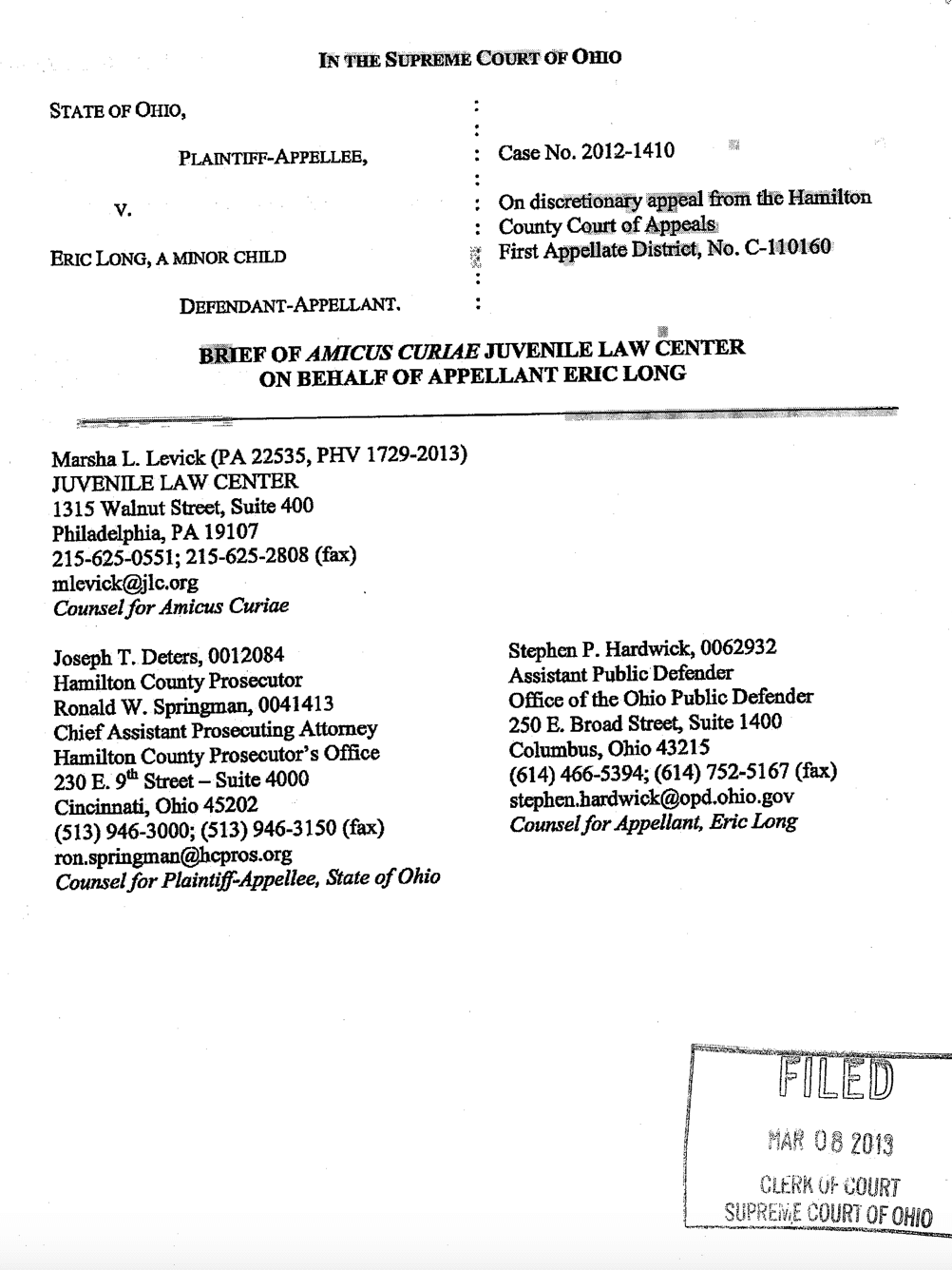
Summary of Argument
Juvenile Law Center writes in support of Appellant's argument that the trial court's imposition of a sentence of life imprisonment without the possibility of parole violates the Supreme Court's holdings in Miller v. Alabama, 132 S. Ct. 2455, 183 L. Ed. 2d 407 (2012) and Graham v. Florida, 130 S. Ct. 2011, 176 L. Ed. 2d 825 (2010). Miller reaffirms the U.S. Supreme Court's recognition that children are fundamentally different from adults and categorically less deserving of the harshest forms of punishments. Miller requires the sentencer to make an individualized sentencing determination based on a juvenile's overall culpability. Appellant's life without parole sentence is unconstitutional because the court failed to account for how appellant's status as a juvenile counseled against a life without parole sentence. Absent a determination that appellant is among the "uncommon" juveniles for whom a life without parole sentence is justified, his sentence must provide a meaningful opportunity for release.